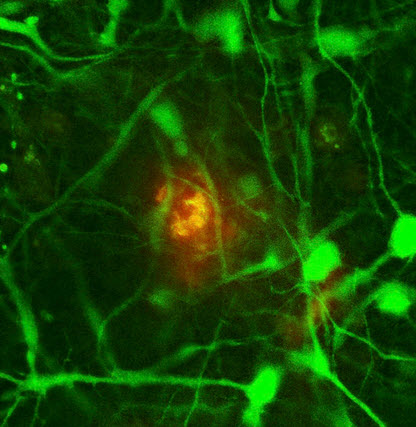Alzheimer’s-in-a-dish is ‘first clear evidence’ for amyloid hypothesis
Promises to revolutionize drug discovery for neurodegenerative disorders
October 13, 2014

A confocal microscope image of an amyloid-beta deposit (red-orange) in 3D neural cell culture (credit: Se Hoon Choi et al./Nature)
Massachusetts General Hospital (MGH) researchers have created the first “Alzheimer’s-in-a-dish” — a 3D petri dish capable of reproducing the full course of events underlying the development of Alzheimer’s disease.
Alzheimer’s has been thought to result from the buildup of inflammatory plaque formed by the beta-amyloid protein and from another protein, tau, which entangles neurons.
The new research provides the first clear evidence supporting the hypothesis that deposition of beta-amyloid plaques in the brain is in fact the first step in a cascade leading to the devastating neurodegenerative disease, the researchers say. The research also identified the essential role in that process of a specific enzyme that could be a therapeutic target./.../
No comments:
Post a Comment